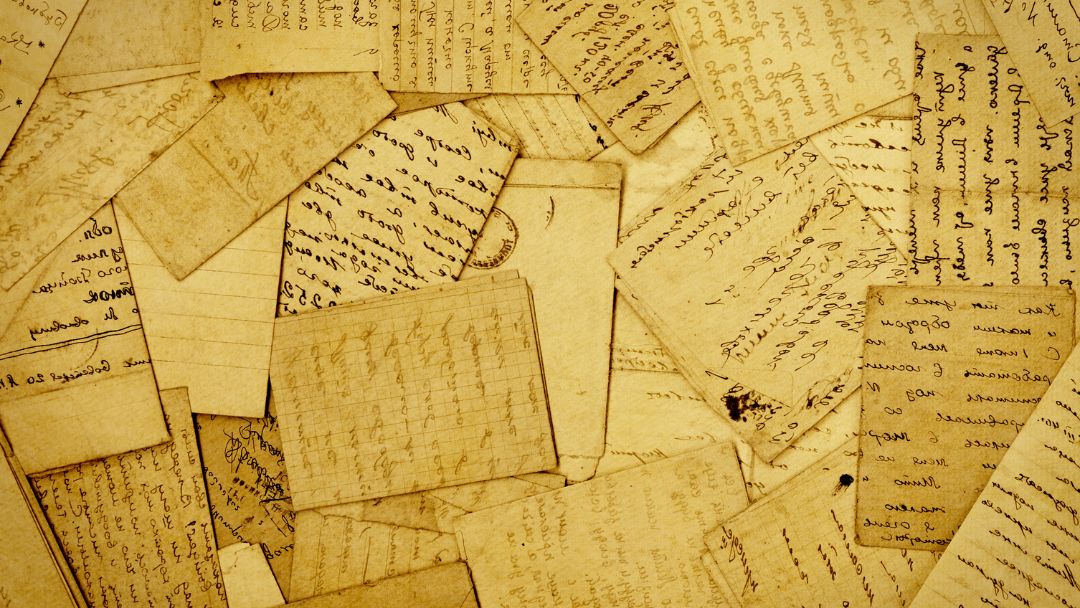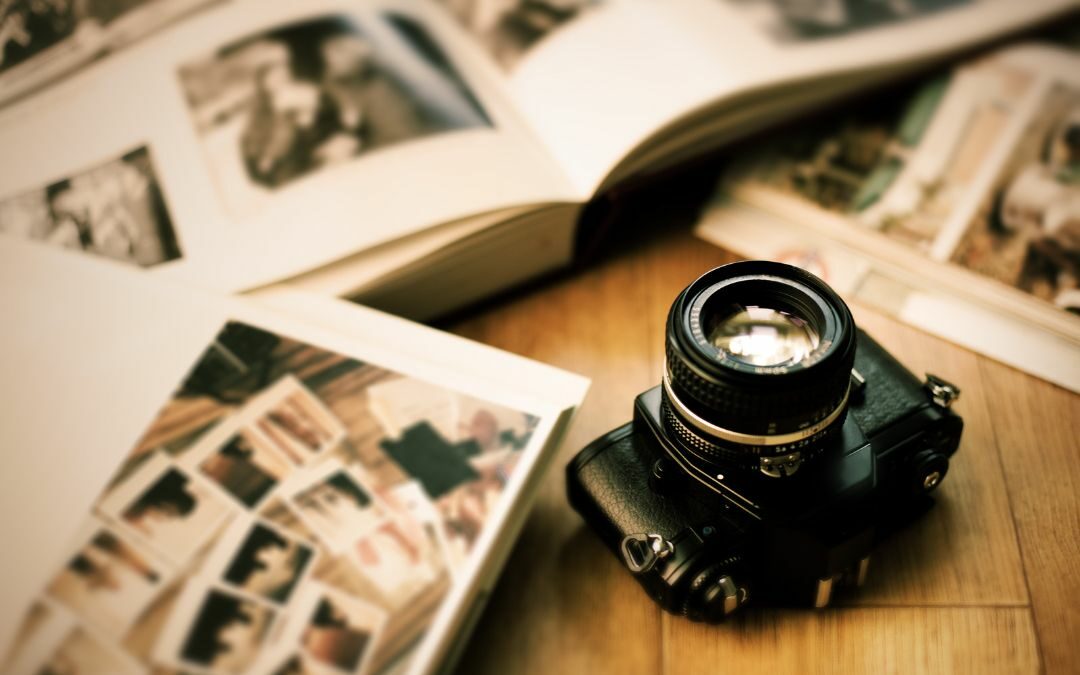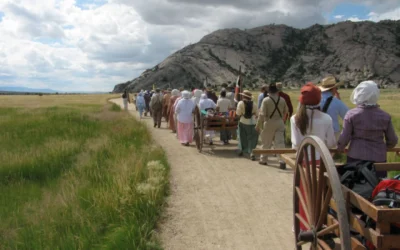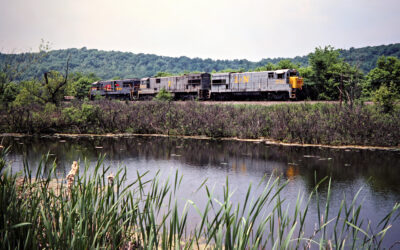Genealogists – professional and amateur alike – know that the Family History Library (“library” or “FHL”) in Salt Lake City, Utah, is a phenomenal repository of genealogical records. Indeed, the FHL is considered the largest genealogical library in the world.
Owned and operated by the Church of Jesus Christ of Latter-Day Saints (“the Church”), the library boasts some impressive statistics:
- Over 340,000 unique books
- Access to over 1,386,000 films,197,000 microfiche, and hundreds of CDs
- 18,460 maps from around the world
- Over 500,000 free genealogy books, family histories, maps, and yearbooks
- Free access to billions of online records
- Countless contractually restricted materials only available in the FHL
In addition, the library has 45 full-time and part-time staff, 550 full- and part-time volunteers, 550 internet computers, and 1200 microfilm and microfiche readers. The library is free for everyone.
On a business trip years ago, I visited the library for a day and knew I had to return. After retiring, I was able to go back for two weeks to research my family’s heritage, one week in June 2019 and one week in September 2021. My time there was incredibly fruitful because I was able to access records not available to me online or easily found in the United States, and also because the library’s staff and other professional genealogists assisted me.
For example, during my 2019 visit, I found church records from Rottenburg-am-Neckar in the Kingdom of Württemberg that enabled me to write my great-grandfather Bernard Volmer’s story, and eventually led to my finding twenty cousins living today in Hochdorf, Germany. Outside of Germany, these records were only available at the FHL.
During my 2021 visit, I found a Last Will and Testament of my sixth degree great-grandfather Dabney Pettus that confirmed my theory on the pedigree of his daughter Elizabeth (Pettus) Gates who migrated from Halifax County, Virginia, with her husband William Gates, Sr., to Mason County, Kentucky, in the 1790s.
Planning Your Trip
Getting the most of an FHL visit requires planning before you arrive and knowing what to expect once you are there. You will want to “hit the ground running” because the time will fly by. So, before you leave for Salt Lake City, select one or two major areas of your current research to pursue at the library, and try to accomplish as much as you can at home either online or in person. Unless you are just starting out, do not expect to find answers to every outstanding question or plug every hole you may have in your research. You’ll spread yourself too thin.
Bring as much of the relevant research as you can and draft specific questions for which you need answers or where you have hit brick walls. You will want to use your time in the library wisely and being prepared is the best way to do that. For example, to pursue my 5th degree great-grandmother Elizabeth (Pettus) Gates, I had a local copy shop print a large version of a detailed pedigree chart with information I had collected over several months online.
I used a large document so that I could easily take notes on it. That said, you should have one or two backup research projects in case you succeed with your primary objectives or reach a point where you have run out of options with what you know so far. You do not want to be in the library without something to research!
You’ll Need Supplies
Bring certain supplies to the library: pencils, pens, markers, highlighters, notebooks, blank genealogy forms, and one or two flash drives. (I also bring a ruler in case I need to create a new form to accommodate my findings.) The library has staplers, scotch tape, and scissors that you can use. The thumb drives are important in order to save your research from the FHL computers.
You can also use a smartphone to photograph documents on a computer screen. I must have taken over 100 photographs of documents that way on my last visit. There are printers in the library that are free to use; however, the library has asked users to print only 20 copies a day. Everyone is on the honor system. Last, the library has computer stations on every floor, some with multiple screens and tables that accommodate laptop computers.
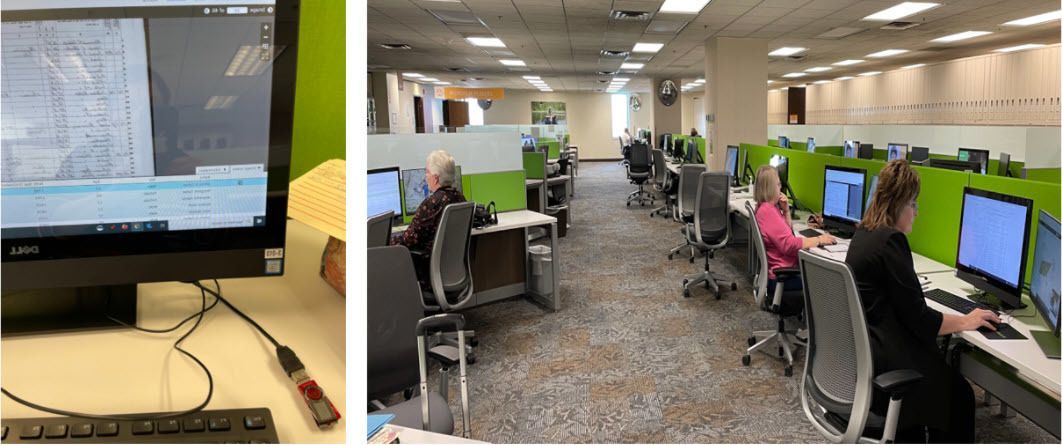
Interior of Library [Source: Author’s Collection]
Before you leave for Salt Lake City, set up an account on FamilySearch.org if you do not have one already. The library uses the Catalog feature to access records. It is a free site owned and operated by the Church.
Many people maintain their trees on the site. I do not as I use Ancestry.com for that purpose. I do, however, maintain a “dummy” tree of ancestors on the FamilySearch.org site and on the MyHeritage.com site to facilitate my research on both sites. You can also access Ancestry.com from the library’s computers, which do not, however, support Family Tree Maker.
Touring the Library
The library organizes its records primarily by type and geography. US/Canada books, for example, are on the third floor. And what books! I found an incredible number of land records from Kentucky’s Mason and Bracken Counties that let me piece together the extent of my fourth degree great-grandfather William Gates, Jr.’s assets and where he and his wife, Theodosia Collins, lived in the early nineteenth century. The other floors are organized as follows: B2 (International Books); B1 (International Research and Microfilm); and Second Floor (US/Canada Research and Microfilm). The first floor has computer stations mainly for people new to genealogy.
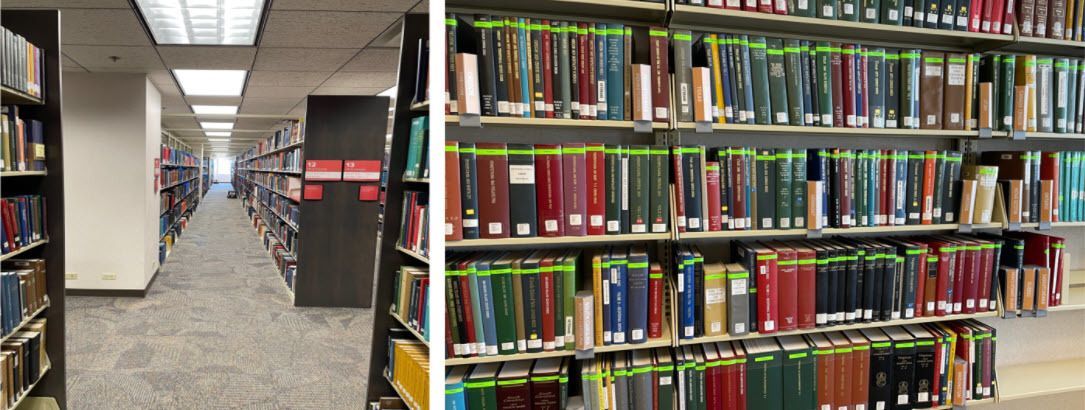
Interior of Library [Source: Author’s Collection]
Finding Lodging and Meals
There are just a few logistical matters of which you should be aware. The library is at 35 North West Temple Street, Salt Lake City, Utah 84150. It sits across from one opening to Temple Square where the Church’s Salt Lake Temple, Salt Lake Tabernacle, and other church buildings are located. They keep the area maintained and it is quite beautiful.
The library is also well maintained and cleaned periodically throughout the day. There are several hotels in the area. During both of my week-long visits, I stayed at the Salt Lake Plaza Hotel, which is next to the library. There are many restaurants that are easily reachable by walking or on the free inner-city commuter train called TRAX. The library is also currently constructing a small café on its first floor.
When I was there in September 2021, they only had vending machines that had remarkably good food. I ate there every day to save precious research time. Finally, regarding logistics, the library is currently open from 9:00 AM to 5:00 PM MST. These are shorter hours than pre-pandemic; however, the library hopes to lengthen them sometime next year.
Traveling with Others
Finally, I want to mention that on both of my week-long trips; I was part of a group organized by a company called Ancestor Seekers. It is just one of many companies that offer genealogy research packages. Some companies offer lectures and training, research help, and lodging.
Ancestor Seekers’ packages include only the hotel, one dinner, and, most significantly, access to professional genealogists who were on each floor to assist us in our research. I took advantage of their expertise frequently, and also called upon the library staff who were very helpful.
Editor’s Notes
As always, check with any library or facility you are visiting to confirm hours of operation and other logistics.
The Society does not endorse any specific vendor and encourages researchers to fully educate themselves on what opportunities are available to them.

